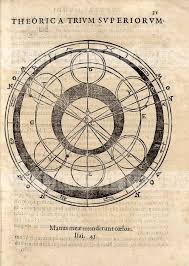The Wonder of Astronomy Books
Astronomy, the study of celestial objects and phenomena beyond Earth’s atmosphere, has captivated humanity for centuries. For those eager to delve into the mysteries of the universe, astronomy books serve as windows to the cosmos, offering knowledge and inspiration in equal measure.
Exploring the Universe
From ancient civilizations gazing at the stars to modern-day space exploration, astronomy books cover a vast array of topics that appeal to both novice stargazers and seasoned astronomers. Whether you’re interested in learning about the history of astronomy, understanding the latest astronomical discoveries, or exploring the wonders of the solar system and beyond, there is a book waiting to guide you on your cosmic journey.
Types of Astronomy Books
Astronomy books come in various forms, catering to different interests and levels of expertise. Beginners may find introductory guides that provide a solid foundation in astronomical concepts and terminology. For those seeking more depth, advanced textbooks offer detailed explanations of complex theories and phenomena.
Additionally, coffee table books with stunning images captured by telescopes and spacecraft allow readers to marvel at the beauty of distant galaxies, nebulae, and planets. Interactive astronomy books may include star charts, activities, and experiments that enhance learning through hands-on exploration.
The Joy of Discovery
One of the most rewarding aspects of reading astronomy books is the sense of wonder and discovery they evoke. As you turn each page filled with vivid descriptions and illustrations, you embark on a journey through space and time, uncovering the secrets of black holes, supernovae, exoplanets, and more.
Whether you’re drawn to the mysteries of dark matter or fascinated by the intricacies of planetary orbits, astronomy books offer endless opportunities for intellectual growth and awe-inspiring revelations.
Conclusion
In a world where technology allows us to peer deeper into the cosmos than ever before, astronomy books remain invaluable companions on our quest for knowledge about the universe. So pick up a book, gaze at the stars above, and let your imagination soar as you explore the wonders of astronomy.
Exploring the Cosmos: A Beginner’s Guide to Astronomy Books – Discovering Types, Top Reads, and Starting Points
- What are the 4 types of astronomy?
- What is the best book to learn about astronomy?
- Where to start reading astronomy?
- How to learn astronomy for beginners?
What are the 4 types of astronomy?
Astronomy, the study of celestial objects and phenomena, encompasses four main branches that provide unique perspectives on the universe. The four types of astronomy include observational astronomy, which involves using telescopes and other instruments to observe and study celestial bodies; theoretical astronomy, where mathematical models and simulations are employed to understand the behavior of astronomical phenomena; astrophysics, focusing on the physical properties and processes of celestial objects such as stars, galaxies, and black holes; and cosmology, the study of the origin, evolution, and structure of the universe as a whole. Each branch contributes to our comprehensive understanding of the cosmos, offering insights into its vast complexities and mysteries.
What is the best book to learn about astronomy?
When it comes to the frequently asked question of what the best book is to learn about astronomy, the answer can vary depending on individual preferences and levels of expertise. For beginners looking for a comprehensive introduction to astronomy, titles like “NightWatch: A Practical Guide to Viewing the Universe” by Terence Dickinson or “Cosmos” by Carl Sagan are often recommended for their accessible language and engaging content. More advanced readers may prefer textbooks such as “Astrophysics for People in a Hurry” by Neil deGrasse Tyson or “The Elegant Universe” by Brian Greene, which delve into complex theories with clarity and depth. Ultimately, the best book for learning about astronomy is one that resonates with the reader’s interests and provides a solid foundation for exploring the wonders of the cosmos.
Where to start reading astronomy?
For those wondering where to begin their journey into the captivating realm of astronomy through books, a great starting point is with introductory guides that provide a solid foundation in basic astronomical concepts and terminology. These beginner-friendly books offer a gentle entry into the vast universe of astronomy, helping readers navigate through topics such as the solar system, stars, galaxies, and beyond. By starting with accessible resources that explain fundamental principles in an engaging manner, aspiring astronomers can lay a sturdy groundwork for further exploration and discovery in the fascinating field of astronomy.
How to learn astronomy for beginners?
For beginners eager to embark on a journey into the fascinating world of astronomy, there are several steps to kickstart their learning experience. A great way to begin is by investing in introductory astronomy books that cover fundamental concepts such as celestial bodies, the solar system, and basic astronomical terminology. Attending local stargazing events or joining astronomy clubs can provide hands-on experience and guidance from experienced enthusiasts. Online resources, including educational websites and interactive apps, offer a wealth of information and engaging tools for beginners to explore at their own pace. By immersing oneself in these resources and actively observing the night sky with a simple telescope or binoculars, aspiring astronomers can cultivate a deeper appreciation for the wonders of the universe while gradually building their knowledge and skills in astronomy.

